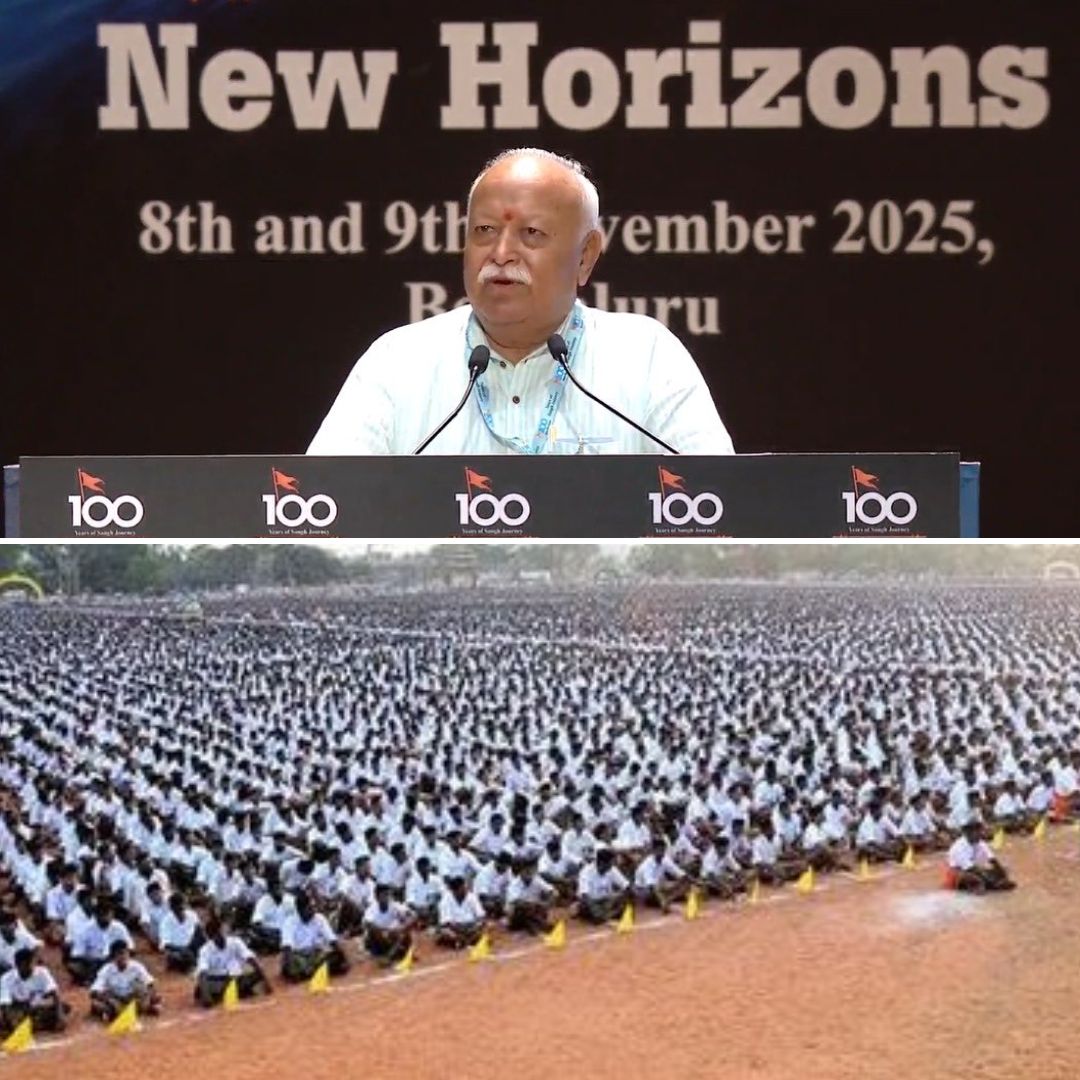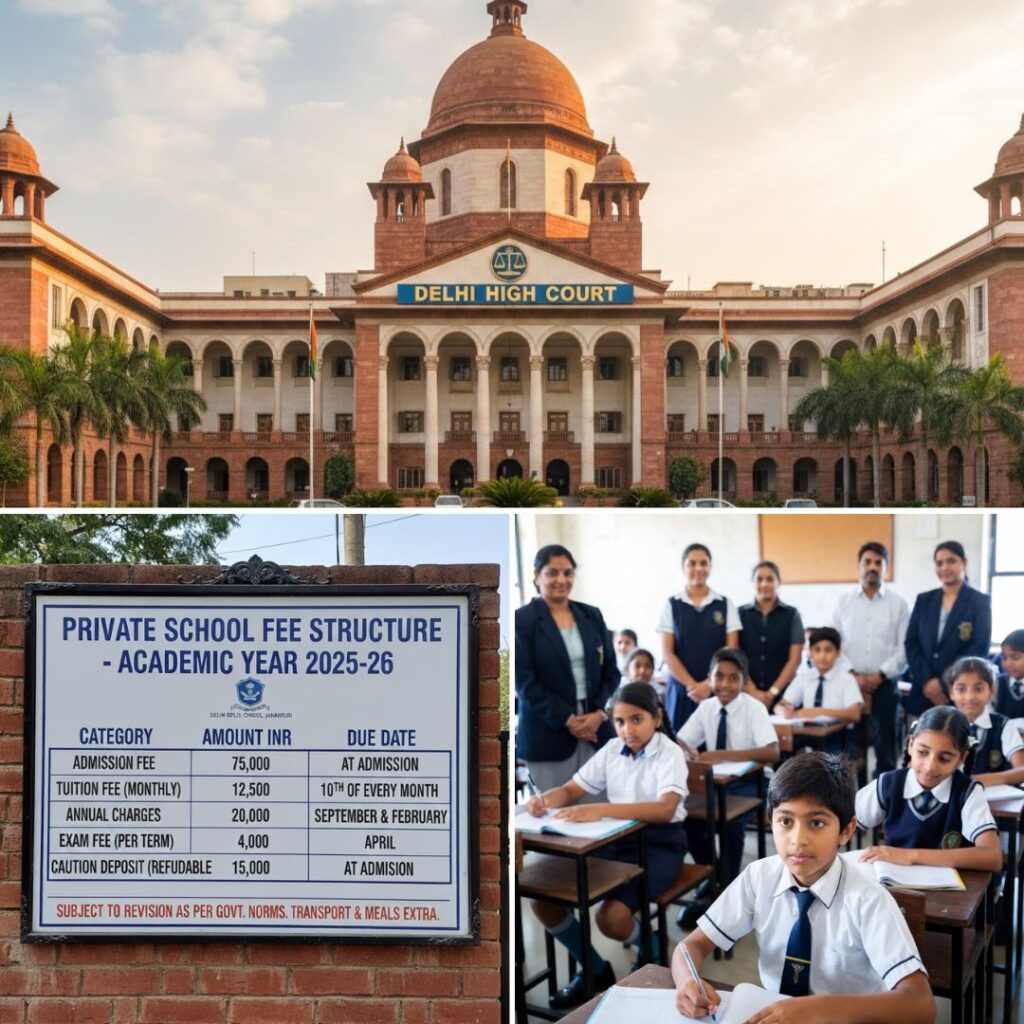RSS chief Mohan Bhagwat, during the “100 Years of Sangh Journey: New Horizons” lecture series in Bengaluru, reiterated that only Hindus are allowed in the Rashtriya Swayamsevak Sangh (RSS), but clarified that “Hindu” is not a religion but a civilizational identity encompassing all Indians, including Muslims and Christians, as long as they identify as “sons of Bharat Mata” and leave behind their “separateness.”
Bhagwat asserted that there is no “Ahindu” (non-Hindu) in India, as everyone is a descendant of the same ancestors and the country’s core culture is Hindu.
His remarks sparked debate, with the RSS defending its stance as inclusive within a shared national identity, while critics question the practicality and inclusiveness of this definition.
Bhagwat’s Civilizational Definition of Hindu
At the centenary event, Bhagwat defined “Hindu” as a civilizational identity rooted in geography, traditions, and devotion to “Bharat Mata,” rather than a religious label.
He stated that all Indians, regardless of their faith, are descendants of the same ancestors and share a common cultural DNA. “Our DNA is the same as well… Living in harmony is our culture,” Bhagwat said, stressing that the term “Hindu” was historically used by outsiders to describe people living in the region of “akhand Bharat” or undivided India.
He invited Muslims, Christians, and others to join RSS shakhas if they leave behind their “separateness” and identify as part of the broader Hindu society, adding that the RSS does not count or ask about members’ backgrounds once inside the shakha.
Bhagwat further explained that “Hindu” is synonymous with “Bharatiya” and “Hindavi,” and that this identity is not about exclusion but about unity and shared responsibility for the nation.
He emphasized that the RSS’s mission is to foster selfless service and national pride, urging all Indians to embrace the values of sacrifice, harmony, and cultural preservation.
RSS’s Inclusivity and National Unity
Bhagwat’s vision of a “Hindu Rashtra” is not about political power or exclusion, but about unity in diversity. He emphasized that the RSS believes in inclusivity and oneness, not exclusion, and that the organisation’s mission is to unite all Indians under a shared civilizational identity.
He said, “Justice is the same for everyone. ‘Hindu Rashtra’ does not mean excluding anyone. It does not mean opposing anyone… Diversity does not cause disunity. That unity comes from uniformity is not the case. Unity is also in diversity.”
Bhagwat also stressed that the RSS’s goal is not to gain political power but to organise Hindu society for national prosperity and global contribution.
Historical and Political Context
Bhagwat’s remarks come amid ongoing debates about the RSS’s inclusivity and its role in shaping India’s national identity. The RSS has been banned three times in history-first in 1948 following Mahatma Gandhi’s assassination, then during the Emergency (1975–1977), and after the demolition of the Babri Masjid in 1992-but each time, the courts have dismissed the ban, affirming the organisation’s legal status within the Indian Constitution.
Bhagwat defended the RSS’s unregistered status, stating that the law does not require every organisation to register and that the Sangh operates as a “body of individuals” under constitutional protection.
He argued that even Hindu Dharma is not registered, and the RSS’s financial contributions, termed “gurudakshina,” have been exempted from taxation by courts, further reinforcing its legitimacy.
Critics, including Karnataka’s IT minister Priyank Kharge, have questioned the transparency and accountability of the RSS’s finances, but Bhagwat maintains that the organisation’s structure and operations are well within the constitutional framework.
The Logical Indian’s Perspective
The Logical Indian believes that national unity and social harmony are best achieved through dialogue, empathy, and respect for diversity.
While Bhagwat’s vision of a shared civilizational identity may inspire some, it is crucial to ensure that all communities feel included and valued in India’s pluralistic society.
The debate around who is a “Hindu” and who belongs in national organisations like the RSS should be approached with sensitivity, recognising the rich tapestry of faiths and cultures that make up India.











